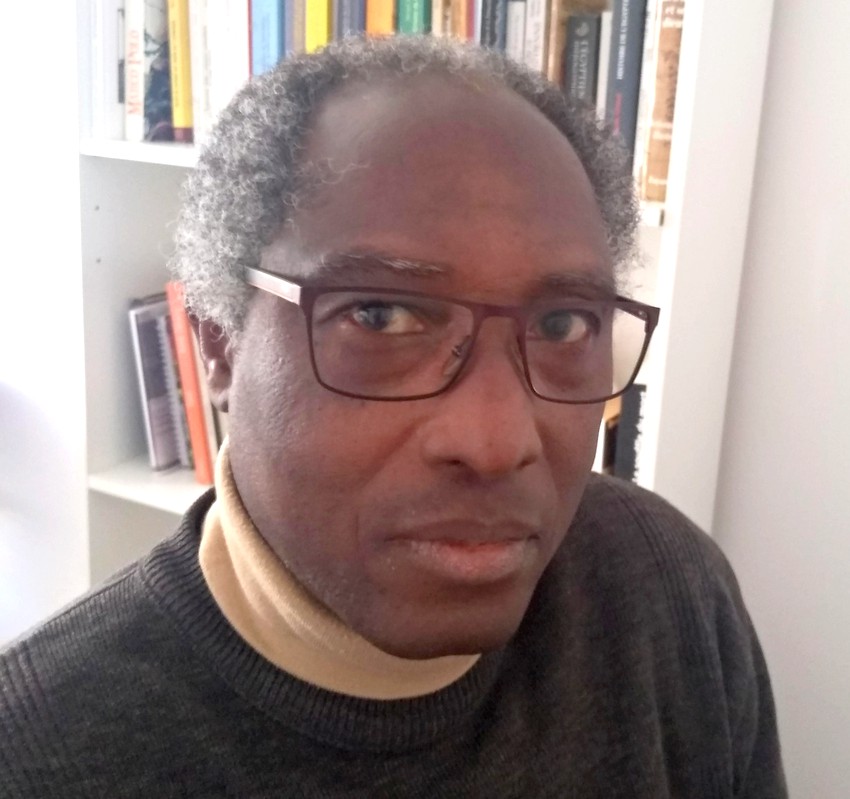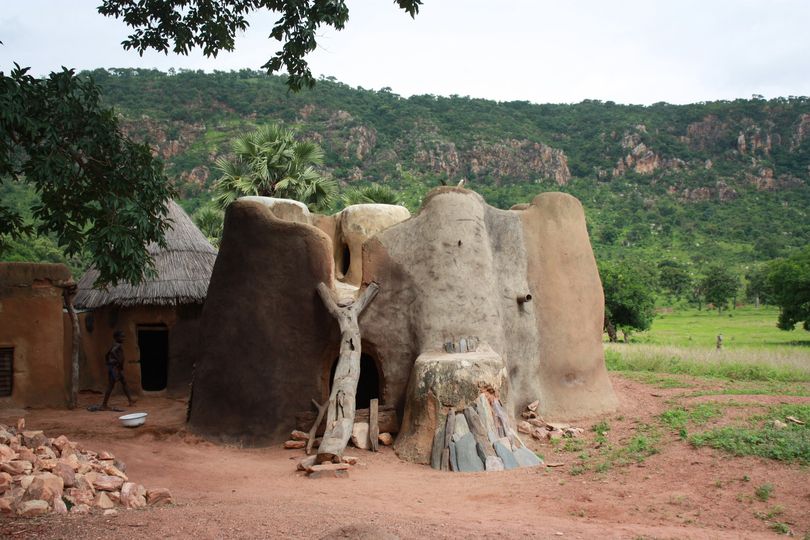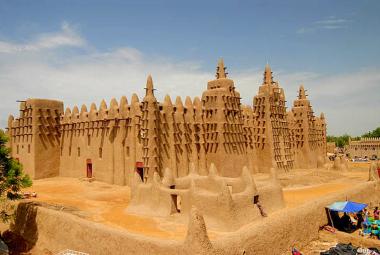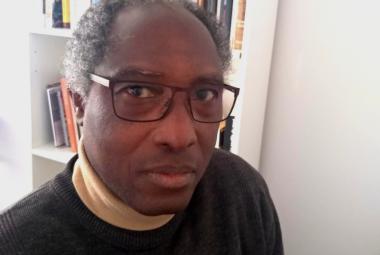In the old NATEMBA traditions, it is inappropriate or even forbidden to DEFY in terms of KNOWLEDGE. Except during what I call the “OLD SLAM” and which is called “CHADJI” in the NATENI language. In the sense that this “CHADJI” is a confrontation which makes it possible to renew or develop KNOWLEDGE on the history of society.
ABOUT THE FILIATION BETWEEN ANCIENT NUBIA AND ANCIENT EGYPT, IT IS OBVIOUS THAT IT IS ANCIENT NUBIA WHICH GAVE BIRTH TO ANCIENT EGYPT.
If you say the CONTRARY, I DEFY you to bring me ANY BEGINNING OF PROOF.
- All the CULTURE of the Society of ANCIENT EGYPT is NEGRO-AFRICAN and without any ambiguity, long before all the FOREIGN INVASIONS;
- The Names of the ANCIENT EGYPTIANS which have come down to us are NEGRO-AFRICAN and without any ambiguity;
- The Language of the ANCIENT EGYPTIANS which has come down to us is NEGRO-AFRICAN and without any ambiguity;
Take for example! I take the word “HOUT” from you:
« Hout » in vocalized writing or « Hwt » in consonantal means "Dwelling" more generally. But this concept has a broader and more complex meaning than the one we know today.
In summary of the thesis of Juan Carlos Moreno Garcia, we can read:
“Hwt" was one of the most frequent elements in the literary and administrative texts of Egypt of the old empire, as well as in the titles of civil servants. It also entered into the formation of several compound terms. Epigraphic analysis of graphic variants of the hieroglyph hwt, and the study of terms compounded with hwt, reveals that hwt was a kind of center of work, depot and sometimes fortress, an institution dependent on the crown. Literary texts and monumental inscriptions confirm that hwt played the role of relay, of support point intended to supply expeditions and civil servants on mission. Private inscriptions suggest that hwt was never part of the private estate of a crown official, while the iconography of mastabas has often been invoked as evidence of hwt belonging to the private patrimonies of private individuals. Finally, the study of the distribution of hwt in the nomes of Egypt reveals that its presence was more important where the role of the temples was negligible”.
« Hout » or « Hwt » is one of the ancient concepts which most certainly dates back to the time of the « Calabash Civilization ». I thus baptized with this name the First Civilization which emerged in the Nile Valley long before Pre-Kerma and Pharaonic Egypt. This word therefore reached the Predynastic with an ellipse already. Because « Hwt » most certainly derives from the consonant « H-W-NT » which is the vocalized equivalent of « Hou-Wa-Nounta ». And from time to time, this concept is the one that has reached the current Natemba in the vocalized form of « Hwonta » or « Onta » or even in a more elliptical way of « On » or « Hwon ». Especially when we know that « On » or « Hwon = Wn ». Another concept derived from it is the famous « Onekh » in ancient Egyptian.
« Hout » or « Houta » or « Houti » or « Houli » in current Nateni, it is "To be in a place", "To stay", "To live", "To sit", etc. But all the same with this nuance or subtlety that it is in Plenitude or Beatitude, and the word is not exaggerated in this case. Also, the Natemba still use it today to greet each other when they say "You are there" (Na Ye Houli) as the ancient Egyptians would in their time when saying « Hotep ». So the question « Ba Houli Ya? » or contracted in « Ba Hou Ya? » is equivalent to asking “Where do they live?”, “Where do they reside?”, “Where do they live?”, “Where are they? ", " Where are they ? ", etc.
Another example with the words "PER ÂA" that the GREEKS used to construct the name "PHARAOH":
« PER »: This meaning is however always the same in the language of the current Natemba of North-West Benin. In other words: « Per » (in ancient Egyptian) or « Piéri » (in current Nateni) to say "House", "Dwelling", "Location" and « Âa » (in ancient Egyptian) « Yaa » (in current Nateni) to say "Ancestral", “Great” “Origin”, “Beginning”...
« Pe » or « Pié » (Editor's note: the two are still said today), it is to remain or to live or to be domiciled or to reside. The « Per » or « Piéri » is a form of ubiquitous contraction in these ancient languages which proceeded a lot by joining words and thus simplifying the fact of saying « Pe-Our » or « Pié-Ouri ». And it is probably no coincidence that the Scribes of ancient Egypt were well inspired and believed they had to leave the door of the House open, the representation of which clearly shows the walls to indicate that it was acts of a House where one enters and leaves. The term House has made it possible to form many other compound nouns: « Pr-Aa » (pr-ˁȝ): That of the Great House or Pharaoh, « Pr-Ânkh » (pr-ˁnḫ): House of life, « Pr-Hedj » (pr- ḥḏ): White House or Treasury, « Pr-Henou » (pr-hnw): House of Rejoicing, « Pr-Jt » (pr jt): House of the Father or Heritage, « Pr-Medjat » (pr-mḏȝt): House of Papyrus Scrolls or Library, « Pr-Nebou » (pr-nbw): House of Gold or Treasury, « Pr-Nesout » (pr n(y)-sw.t): King's House or Palace, « Pr-Netjer » (pr-nṯr): Domain of the God, etc.
The name "PHARAOH" comes from « Pharao » in GREEK, and it means the Great House translated into the language of the ancient Egyptians, before becoming the name of the Master of the house.
Those who know the ANCIENT TRADITIONS of the NATEMBA know that the most OLD and IMPORTANT of the RITUALS was called "KOUM PIERI" and that we could also write "KAM PIERI". It absolutely refers to "KAMA" or in consonant "KM". But we should hardly delude ourselves. Before being systematically associated with ANCIENT EGYPT, the term “KAMA” or “KM” ancestrally designated the entire NILE VALLEY.
WHAT EVERYONE HAD FORGOTTEN: There is a people called NOUN-YO-LUO or NATEMBA in the NORTH-WEST of BENIN who can understand both the meaning of the Names and the lexicon of the Language of ANCIENT EGYPT.
And this same People, forgotten by LINGUISTS and ETHNOLOGISTS, can understand both the meaning of the Names and the liturgical lexicon of the oldest Indian Languages. AND IT HAS NOT YET FINISHED TO SURPRISE YOU…
When you are a SPECIALIST (instead of reacting epidermically to contradiction), the least you can do is be intrigued, even question yourself and try to understand the end of the story. But we cannot cover our ears or close our eyes. And, above all, CLAIM IN A PEREMPTORY, EVEN DOGMATIC WAY that what we know is the TRUTH. As if we were THOT or DJEHOUTY in person.
WHETHER THEY WANT IT OR NOT, I WILL MAKE THEM HEAR IT. Unless they do IDEOLOGY instead of SCIENCE.
And if there is a SCIENTIFIC COMMUNITY in this world, then they WILL HEAR IT. THIS IS NOT A FAVOUR, IT IS RATHER AN INTELLECTUAL OBLIGATION. And I will never stop repeating it.
By Marcus Boni TEIGA
POST SCRIPTUM:

In its time, the Nateni National Commission of Linguistics had raised funds and asked the late PROFESSOR FELIX IROKO of the UNIVERITY OF ABOMEY-CALAVI (EX-NATIONAL UNIVERSITY OF BENIN REPUBLIC) to kindly work to retrace the HISTORY OF NATEMBA. Unfortunately, he failed to do so and confessed his failure to the Commission. It must be said, in his defense, that anyone who knows the NATEMBA could predict this. It was after that, as I like to remind, my great cousin ALPHONSE MOUNDOUKOU, Civil Administrator of his state, asked me to look into it. Twice, I had tried and I had failed also. And, before embarking on it for the third time, I decided to start by first studying the LANGUAGE of the NATEMBA. This is how I managed to unravel the mystery of the ORIGINS OF THE NATEMBA. Beyond ANCIENT EGYPTIAN, I discovered the astonishing similarities with the LANGUAGES OF INDIA which I began to study immediately. The first to whom I spoke about it was PROFESSOR BERNARD SERGENT, Specialized in Indo-European comparatism, researcher at the CNRS and president of the French Mythological Society. He is the author of "Genesis of India", Editions Payot, 1997. He is one of the most open Specialists I have ever met in this area. Because we had exchanges as it should and I appreciated at its true value his open-mindedness. This is why I never stop quoting him when I talk about INDIA and the ancient presence of BLACKS in this territory of ASIA.




















